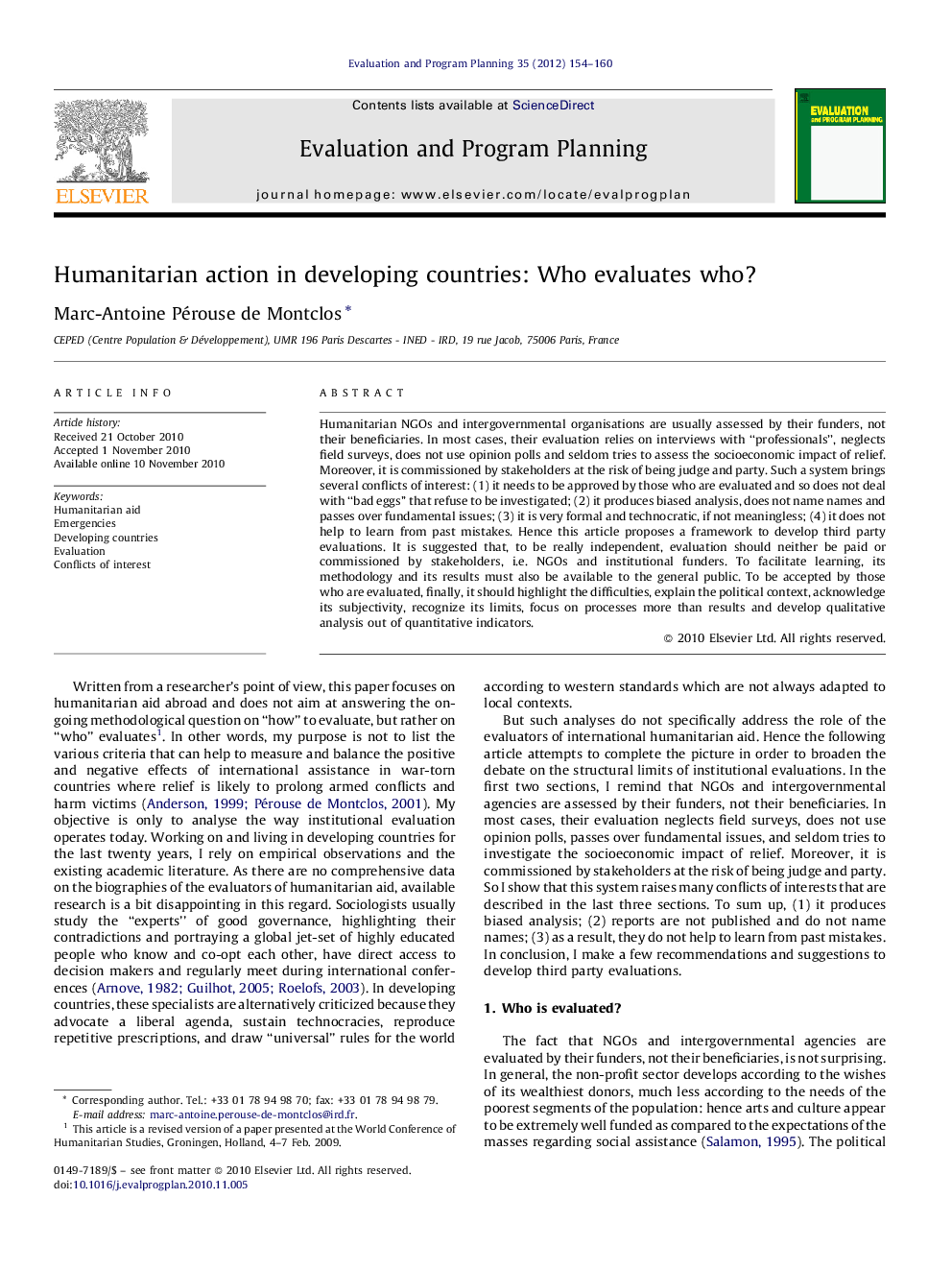| کد مقاله | کد نشریه | سال انتشار | مقاله انگلیسی | نسخه تمام متن |
|---|---|---|---|---|
| 322546 | 540085 | 2012 | 7 صفحه PDF | دانلود رایگان |

Humanitarian NGOs and intergovernmental organisations are usually assessed by their funders, not their beneficiaries. In most cases, their evaluation relies on interviews with “professionals”, neglects field surveys, does not use opinion polls and seldom tries to assess the socioeconomic impact of relief. Moreover, it is commissioned by stakeholders at the risk of being judge and party. Such a system brings several conflicts of interest: (1) it needs to be approved by those who are evaluated and so does not deal with “bad eggs” that refuse to be investigated; (2) it produces biased analysis, does not name names and passes over fundamental issues; (3) it is very formal and technocratic, if not meaningless; (4) it does not help to learn from past mistakes. Hence this article proposes a framework to develop third party evaluations. It is suggested that, to be really independent, evaluation should neither be paid or commissioned by stakeholders, i.e. NGOs and institutional funders. To facilitate learning, its methodology and its results must also be available to the general public. To be accepted by those who are evaluated, finally, it should highlight the difficulties, explain the political context, acknowledge its subjectivity, recognize its limits, focus on processes more than results and develop qualitative analysis out of quantitative indicators.
Journal: Evaluation and Program Planning - Volume 35, Issue 1, February 2012, Pages 154–160